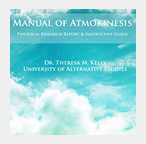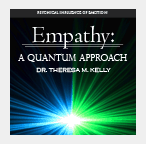Atmokinesis
Parapsychology Articles, Papers and Books
Home > Articles > Psychic Phenomena > Psychokinesis > Atmokinesis
![]()
|
| NEWSLETTERS |
| Get the best from QPsychics.com in your inbox! |
|
| PARAPSYCHOLOGY ORGANIZATIONS |
"With confidence in the importance of utilizing the investigative mode of the established sciences in order to inquire into the authenticity and to potentially explain the nature of psychical phenomena."  |
 |
 |
 |
 |
Chaotic Systems and Prediction Limitation
Atmokinesis is the psychical influence of meteorological phenomena including the states of the atmosphere as measured on temperature, humidity, clarity, and activity scales. Experient influenced meteorological phenomena (weather events) are limited to current or predicted events occurring in the troposphere, which is the lowest portion of Earth’s atmosphere. One limitation that should be mentioned pertains to predicting the outcome of influences. The atmosphere is a chaotic system and even the slightest of influences to one part of a weather system can excite to result in larger effects on the system as a whole than initially expected. This makes weather influencing difficult to predict accurately, especially in regards to experients influencing day-by-day (within 24 hours, but more than hour-by-hour) weather conditions even with all known values and variable considered. Chaos theory states that the slightest variation in the motion of the ground can grow with time. This idea is often referred to as the butterfly effect suggesting that the minute motions caused by the flapping wings of a butterfly could eventually result in marked changes in the state of Earth’s atmosphere. Because of this effect, this sensitivity to minute changes, weather influence will never be deterministic. This is because atmospheric flow itself is not governed by classical physical laws alone, but also quantum-like chaos with intrinsic non-local connections.
(Adapted from the paper “ Manual of Atmokinesis: Applications, Experimentation, and Measurement ” by Theresa M. Kelly, MsD.)
| |||
Related Articles |
|||

